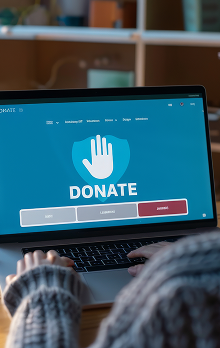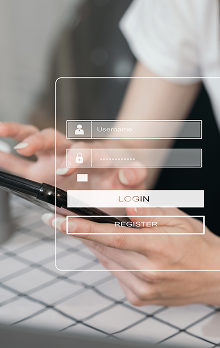Common Types of Financial and Online Scams
Protecting Your Assets with International fraud assistance center
Contact an expertAs soon as you suspect you’ve been targeted by a scam, get in touch with our team. We’re ready to listen and take the first steps toward recovery.
We’ll carefully analyze your case, reviewing every detail to understand how the scam occurred and what can be done next.
Our specialists will gather all relevant information and documentation to build a strong foundation for fund recovery.
You’ll be guided through the legal process with clarity and support at every step by our experienced recovery experts.
Book a consultation – we’re here to support you every step of the way on your journey to reclaim what’s rightfully yours.
While social media connects us, it also opens the door to fraudsters. Scammers use fake investment offers and phishing tactics to trick users. Learn how to recognize these schemes and safeguard your personal data across popular platforms.

Contracts for Difference (CFDs) are often used by scammers to tempt investors with the promise of fast profits from asset trading. Our team breaks down how these scams work, what warning signs to watch for, and how to make safer investment decisions.

Scammers prey on goodwill by posing as legitimate charities. We’ll show you how to verify charitable organizations so your donations truly support the causes you care about.

In these bizarre schemes, scammers claim to offer access to secret societies and guaranteed wealth. In reality, it’s just another trick to steal your money. Learn how to recognize and avoid these deceptive tactics.

The moment you suspect fraudulent activity, get in touch with us. Our rapid response team will immediately begin the recovery process.
We design a recovery strategy tailored to your unique situation—boosting the chances of reclaiming your lost funds.
Our experienced legal network focuses exclusively on financial fraud, ensuring your rights are protected and your case is handled with precision.
Romance scams prey on emotions, often starting with sweet talk and ending in financial loss. By staying informed about these schemes, you can better protect yourself.

Before sharing any personal or financial information, thoroughly research the legitimacy of companies, investment opportunities, or individuals. Make sure to check if the entity is properly registered and regulated by the relevant authorities, such as financial regulatory bodies or government agencies.

Exercise caution when sharing personal details online or over the phone, especially if you did not initiate the contact. Use strong, unique passwords for your online accounts and enable two-factor authentication whenever it’s available to enhance your security.

Always be cautious with unsolicited emails, messages, or links – even if they seem to come from trusted sources. Hover over links to check the actual URL before clicking, and never download attachments from unknown or suspicious senders.

Be careful about what personal information you share on social media, as scammers may use it for targeted attacks. Avoid accepting friend requests or interacting with unfamiliar accounts that seem suspicious or overly eager to connect.

Be wary of investment opportunities that guarantee high returns with little or no risk. Keep in mind that every investment involves some level of risk. Steer clear of any schemes that require recruiting others to make money, as these are often pyramid or Ponzi schemes.

Ensure your computer, smartphone, and other devices are regularly updated with the latest security patches and antivirus software. Use secure, trusted Wi-Fi networks and avoid conducting sensitive transactions or sharing personal information on public or unsecured networks.
If an offer feels too good to be true or raises any doubts, it’s often a sign of a scam. Listen to your gut feelings and don’t hesitate to consult with financial experts or trusted professionals for guidance.

If you come across a potential scam or have been targeted by one, promptly report it to the relevant authorities – such as the Federal Trade Commission (FTC) or your local law enforcement agency. By reporting, you contribute to protecting others from becoming victims of similar fraudulent schemes.


At United Claims Commission, we don’t just work for you – we stand with you.
Together, we’ll navigate the path to financial security and recovery, safeguarding your hard-earned money every step of the way. Face scams with confidence, knowing we’re right by your side.

Want to speak directly with an expert? Leave your message and contact details – our team will get back to you shortly with personalized assistance.

United Claims Commission. Registration number 05386389, operating under the brand name United Claims Commission.